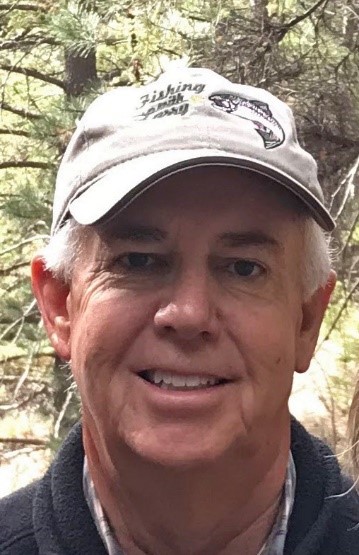After spending more than $70,000 on new dripline for his 160-acre almond block, Lane Parker liked hearing the word “free” — especially followed by the phrase “irrigation evaluation.”
 Lane Parker, who grows almonds in Stanislaus and Merced counties, says the RCD irrigation evaluation helped him measure distribution uniformity in his almond orchards.
Lane Parker, who grows almonds in Stanislaus and Merced counties, says the RCD irrigation evaluation helped him measure distribution uniformity in his almond orchards.
Parker, who farms 800 acres of almonds in Stanislaus and Merced counties, took advantage of a free mobile irrigation lab service offered by the East Stanislaus Resource Conservation District (ESRCD). The program consists of an in-field irrigation system evaluation, including an assessment of distribution uniformity, pressures and application and flow rates.
“We had this brand-new system,” said Parker, who also chairs the Almond Board of California’s Strategic Ag Innovation Committee, “and were interested in establishing a baseline for the distribution uniformity so we can see how this system holds up.”
Benchmarking his new system’s performance, followed by periodic reevaluations, will enable Parker to identify irrigation issues earlier and avoid relying on visual cues in the orchard, potentially averting damage to his trees and yields.
“We have iron in our well water, and it was clogging our old system,” Parker said, noting that he’s taking steps to address the iron issue. “The old system was designed to flow 1,400 gallons per minute and we just kept seeing it decline and decline over four years. It got down to 800 gallons per minute, which isn’t enough to meet the trees’ water demand.”
The conditions on Parker’s 160-acre block also underscore the need to ensure his new system is providing adequate distribution uniformity.
“We have rolling terrain — pretty steeply rolling — so there’s a lot of up and down in elevation change,” he said.
On a different 40-acre block managed by Parker, disease — not terrain — served as the primary factor for assessing distribution uniformity. He made a significant change to his irrigation management due to a severe infestation of band canker in his fourth-leaf trees. Parker theorized that his microsprinklers were overwatering the trunks, aggravating growth cracks and making his trees more susceptible to the disease.
“It was just devasting. We lost a lot of trees — 400, in fact — and I think we lost 8-9% of our trees to band canker,” Parker lamented.
While the system was originally designed to irrigate in two sets of 20 acres each, Parker started irrigating the 40-acre block as 1 set. This reduced the pressure in the system, preventing water applied by his microsprinklers from reaching the tree trunks. Since making the change, Parker has seen a significant reduction in band canker.
However, he knew that changing the irrigation system from its original design could have unintended consequences, so he enlisted ESRCD’s mobile irrigation lab service to perform a free evaluation of the system as it operates now. He’s glad he did.
“We were underwatering our trees. The evaluation report showed we had even flow but poor distribution uniformity due to reduced flow and pressure throughout the orchard. We needed to run water 15-20% longer and the evaluation help put a metric on it.”
All told, Parker has evaluated 200 of his 800 acres through the ESRCD program and plans to have another 250 acres evaluated soon. He recommends that other growers take advantage of this free service, especially if they are looking to improve orchard health and yields, avoid inefficient water use and plan ahead for a future that will likely include less predictable water supplies.
“Growers who have more information about their operations are able to make adjustments, and ultimately improvements. With the water threats that we face, anything that improves efficiency is a plus.”
Growers in the ESRCD who are interested in learning more about a free irrigation evaluation should call (209) 491-9320 or email eaststanislausrcd@gmail.com.
For growers not located in the East Stanislaus Resource Conservation District, many of the 98 Resource Conservation Districts across California offer similar free or low-cost technical assistance programs. You can locate your local RCD at CARCD.org/rcds/find. Growers can also contact Spencer Cooper, senior manager of field outreach and education at the Almond Board of California, to learn more about irrigation optimization and ABC’s Almond Irrigation Improvement Continuum, a comprehensive manual of irrigation management and scheduling practices ranging from fundamental to advanced management levels. For more information on irrigation management, visit Almonds.com/Irrigation or contact Cooper at scooper@almondboard.com or (209) 604-3727.